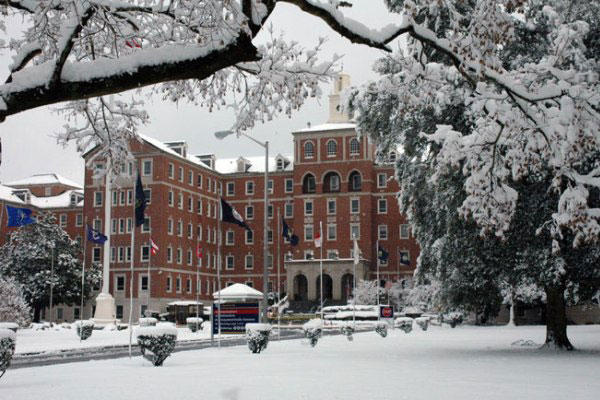Gordon Wayne Bishop doesn't need to read the headlines to be aware of the problem of long wait times at hospitals and clinics run by the VA. He deals with it firsthand.
The 68-year-old Vietnam veteran said he hasn't been able to see a doctor at the VA outpatient clinic in Jacksonville, Florida since January; he keeps getting letters from the facility notifying him that his appointments have been rescheduled.
"I have gotten two letters," he said. "I got one of them the other day. It says, 'Sorry for the inconvenience but this appointment has been canceled.'"
Bishop is among the more than 57,400 veterans awaiting care at facilities operated by the government's beleaguered Veterans Affairs Department, according to an audit released Monday by the agency. Another 63,800 veterans never even got an initial appointment, despite having enrolled in the VA health care system.
The document offers the most comprehensive look at the issue of backlogs at the department's health care facilities, which serve some 9 million veterans and their families, and comes barely a week after VA Secretary Eric Shinseki resigned amid reports that veterans died while waiting for treatment at a VA hospital in Phoenix.
CNN in April reported that at least 40 veterans died while waiting to see a doctor at the Phoenix Veterans Affairs Health Care System, many of whom were placed on a secret waiting list as part of an alleged attempt by the hospital to shield how long it takes to provide care.
From May 12 through June 3, auditors interviewed more than 3,700 VA employees involved in the scheduling process at 731 agency facilities nationwide, including medical centers, outpatient clinics and health care systems.
The review confirmed that agency employees were encouraged to falsify information in the official scheduling system.
About 13 percent of schedulers said they were instructed by supervisors or other agency employees to "enter a date into the appointment scheduling system that was different than what the veteran had requested," the summary document states.
In addition, 8 percent of schedulers acknowledged they didn't always use the agency's Electronic Wait List and instead relied on unofficial alternatives. "In some cases, pressures were placed on schedulers to utilize unofficial lists or engage in inappropriate practices in order to make waiting times appear more favorable," it states.
In response to the findings, Acting VA Secretary Sloan Gibson flagged 112 locations for further review, ended the 14-day scheduling goal for new patients from performance contracts, and scrapped fiscal 2014 bonuses for senior executives.
While the audit doesn't go so far as to specify whether veterans died while waiting for treatment, it does highlight scheduling discrepancies at facilities across the country.
For example, the Fayetteville VA Medical Center had 8,186 appointments that took more than 30 days to schedule -- 17 percent of all appointments. That appears to be the highest percentage of any facility in the VA system. By comparison, the Phoenix VA system, where the wait-list scandal began, had 6,712 appointments that took more than a month to schedule, or 11 percent.
Bishop, a former staff sergeant who served almost two years in Vietnam, said he wants Congress to pass legislation that would make it easier for him to seek medical care from a private clinic at government expense.
"If I were of enlistment age today, you'd have to shoot me before I go in the military -- I would not go," he said. "They told us when we went to Vietnam, 'If you get hurt, then we'll take care of you.' Now you have to beg them just to see a doctor."
-- Brendan McGarry can be reached at Brendan.McGarry@monster.com.




























